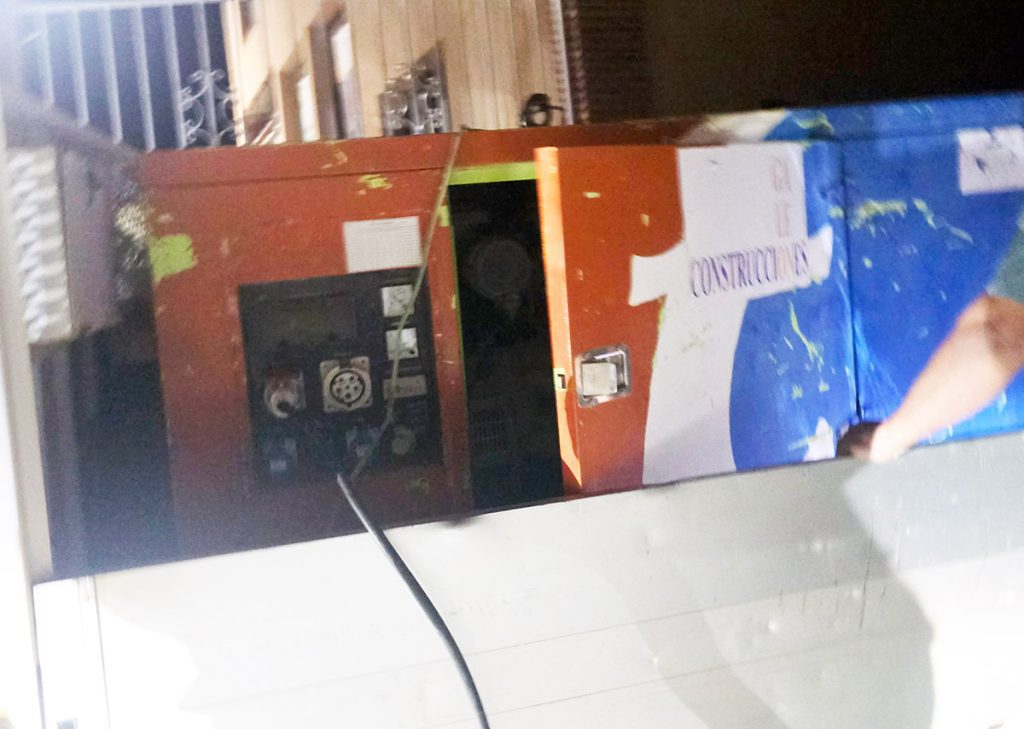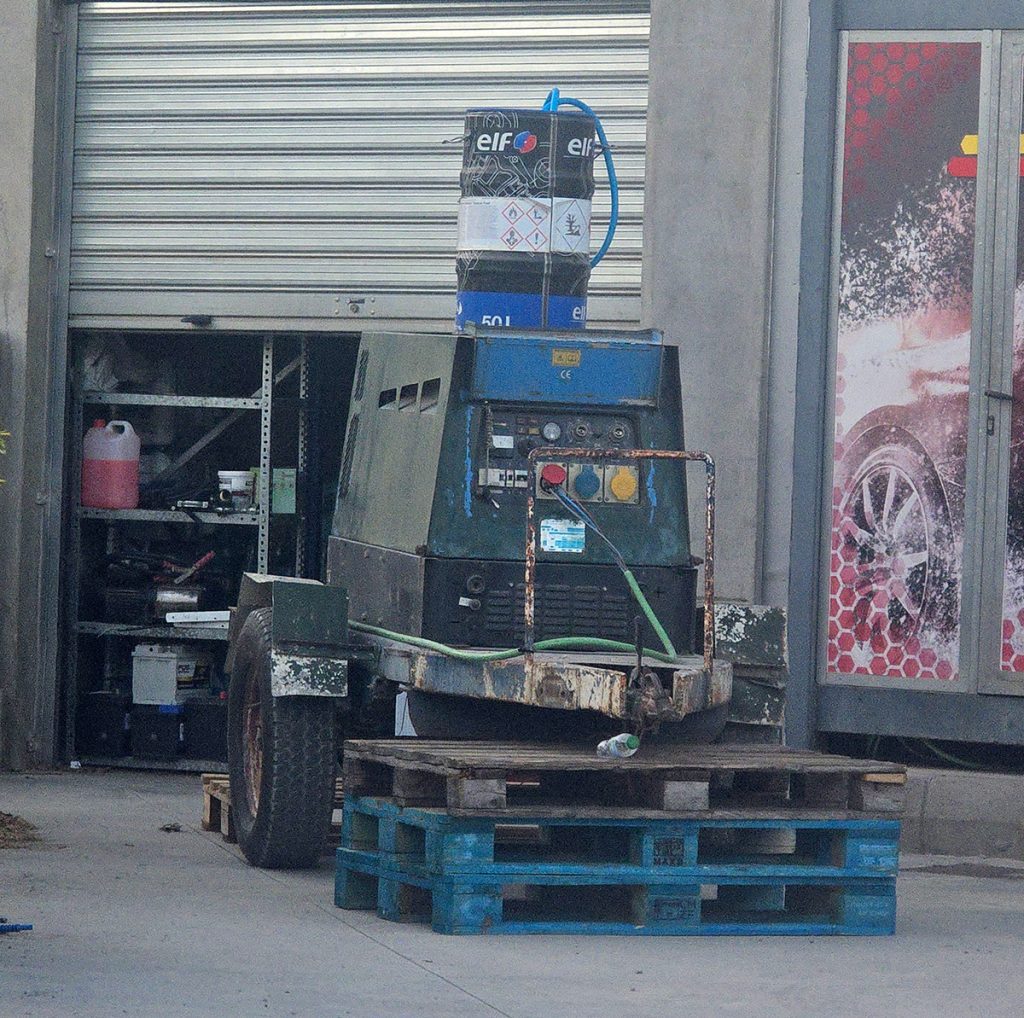MY INTRODUCTION to the major blackout affecting Spain, Portugal, and parts of France was a low-key one. It was the polar opposite of those poor folks in cities, stuck in elevators, trains, tunnels, and behind electric doors, with no phone signal, water, or toilet facilities. (The latter gives me the horrors). Or in hospitals, with staff desperately initiating generators.
Many people couldn’t get food or fuel for their vehicles, because all the payment apps, cashpoints, and other electric terminals were disabled. Worse still: realising that your “environmentally friendly” electric car or bicycle won’t take you home, and that the trams and trains are dysfunctional (or stuck in tunnels) isn’t fun.
The transport chaos continues today, with trams, trains and some flights affected. Speculation about the exact cause of the huge blackout is likely to continue for some time.
But that’s not my point. It’s an observation about what it reflects to us, as a society. That we are too reliant on certain things, especially apps.
Being in nature when it happened
In my own case, instead of a planned trip to Granada city (fortunate!), I was creating a “cringey” (sic) video in a forestry recreation area located at 1,700m. At around 1pm, I saw that the mobile signal was weak. Despite being only slightly “off-grid”, social media was bugging and my new microphone, which uses WiFi to pair with the phone, was behaving badly. It had no sound (possibly an advantage!).
“Unfortunately”, the poor signal immediately stymied a debate raging on Telegram – about killing parasites – meaning that I could enjoy nature in total peace. I blamed the forestry zone for “patchy reception” mullering apps, and immersed myself in the ancient pine trees. They presumably existed long before computers, internet, and huge electricity grids were a thing.
I thought nothing of it. So peaceful.
Spain’s blackout unwinds…
After my phone battery also died, I left the forestry area and went to our ‘rural’ cortijo, at the same altitude. Thus runs off solar power and has WiFi. Strangely, I still couldn’t get Facebook or WhatsApp to work. First World problems, I thought.
My ambivalence changed when I turned on the TV. Located at this altitude, we receive mainly Moroccan channels, and also Canal Sur, one of Spain’s best news sources. The message: “Atasco of power and telecommunications across all of Spain” was flashing across the screen.
“Atasco,” what’s that? I thought. I felt confused. What it meant was a giant power cut – unprecedented – that was going on “down the mountain”. Everywhere, in fact. In Spain and Portugal. Except where I was. Off-grid.
Off-grid living is a winner in most crisis situations
This is a clear advert for rural ‘cortijos’ and off-grid, low-key life, I thought.
As well as watching the national news, I could put on the laundry and use the coffee machine. This was a far (and welcome) cry from being trapped in a lift, potentially filling with bodily fluids, then encountering a giant traffic jam and sitting in it for hours.
Rural accommodation, at altitude, is definitely a winner in case of plague, pestilence, or war (on cities). It was handy during the Covid pandemic, I reflected.
With solar panels, we were the information “haves” – with TV news and phone charging facilities – while the “have-nots” were scrabbling in local stores for battery-powered radios. However, many stores were closing early because they had no “luz”, while others in Granada were reportedly raided of dairy products.
Going downtown
As phone networks were dead, meaning no voice calls, we couldn’t discover what was occurring “downtown” (in our case, Órgiva). A drive down the mountain confirmed that there was no power, and hardly anyone in the streets, lest they might fall over in the pitch dark.
It was dodgy at the town’s main traffic lights, with a motorbike zooming through too fast. That was only in a small town! Imagine Granada or Madrid, with no traffic signals at busy junctions.
It was good to see that some enterprising businesses in Órgiva – including the gas station, a convenience store, and one bar – had made the effort to find huge generators. However, clearly not interested in ‘la luz’, some ‘types’ were huddling in a different, darkened bar, getting drunk. Some things never change!
Many police were circulating – presumably because it was impossible to report crime on the phone. It’s surprising that nobody had looted anything!


Coming back up
At 0.45am, the power came back on, followed by phone networks during the early hours. Now that everyone could see the news, it was easy to understand the scale of the disruption, chaos, trauma, loss (of perishable food, etc). Not forgetting being stuck in hideous situations!
We are definitely vulnerable to this sort of situation again. As a society, we are increasingly reliable on electronic funds, apps, and plug-in vehicles. And nothing works when a giant unplugging occurs!
So, what do we take from this?
Amid speculation about “who dunnit”, yesterday’s situation highlights that some preparations are important. This is exactly in line with the recent EU broadcast re “coping with an emergency kit” – that many people ignored. The advice about battery radios, candles, cash, Swiss penknives, etc., was relevant and exactly what was needed yesterday. At least bother to read it!
So, to prevent being left “in the dark” (literally!), this is the advice that South of Granada recommends:
- Always have some cash. A cashless society is hopeless when no payment terminals work and you can’t buy anything, including food.
- Always have enough fuel in your car – running on the gritty remains at the bottom of your tank won’t help in a crisis. You will be grounded.
- The EU rep was right – carry a wind-up or battery powered flashlight, candles, and an external phone charger (already charged!).
- Have a Swiss Army Knife or, at least, a corkscrew. You won’t regret finding those in the dark if you have wine!
- Secure anything at your property that might be prone to looting. Day II or III would have been enough to start it, we think!
- Realise that electric cars will fail when we don’t have electricity! Are they really what we need?
